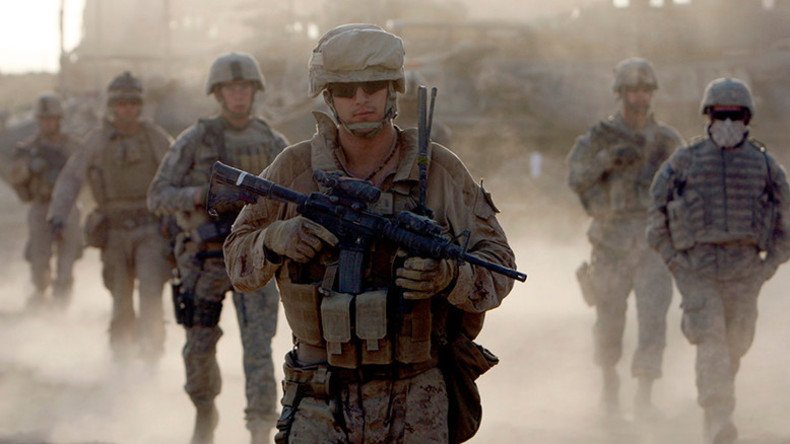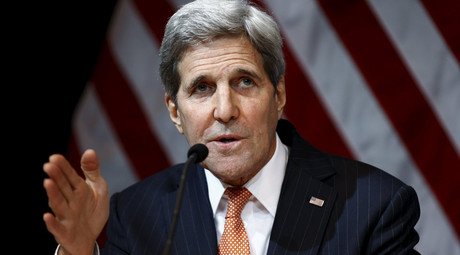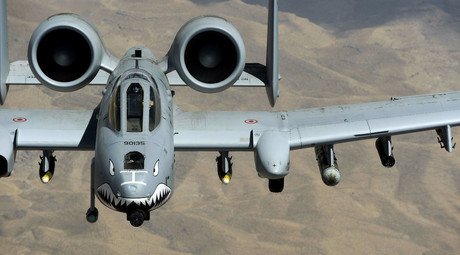US deploys special forces to boost fight against ISIS, poised to carry out unilateral ops into Syria

The US is set to deploy an expeditionary targeting force to help Iraq put additional pressure on Islamic State (formerly ISIS/ISIL), Defense Secretary Ash Carter said. The special forces will be positioned to conduct unilateral operations into Syria.
"These special operators will over time be able to conduct raids, free hostages, gather intelligence, and capture ISIL leaders," Carter told the House Armed Services Committee in prepared remarks, using an abbreviation for Islamic State.
"That creates a virtuous cycle of better intelligence, which generates more targets, more raids, and more momentum," he added.
No US airstrikes in Syria since Russia deployed S-400 systems https://t.co/YphdCfKJ0lpic.twitter.com/uxNWtVjrBF
— RT (@RT_com) November 28, 2015
There are currently about 3,400 American troops in Iraq. In November, the US announced that 50 commandos will be sent to northern Syria to advise anti-IS forces there. The Pentagon would not comment on whether those special operations troops had already arrived in the embattled country.
“Over time,” the 50 forces will conduct raids in both Iraq and Syria "to put even more pressure" on IS, Carter told the committee.
“The raids in Iraq will be done at the invitation of the Iraqi government and focused on defending its borders and building the [Iraqi Security Forces’] own capacity,” Carter said in his prepared testimony. “This force will also be in a position to conduct unilateral operations into Syria.”
Unilateral raids, which would not be sanctioned by Syrian President Bashar Assad, would represent a split from President Barack Obama’s commitment to avoid ground troops in the fight against IS.
Two-thirds of Americans believe that Obama doesn’t have a coherent strategy for combating IS, according to a mid-November poll. About half of respondents approved of sending ground troops to fight the terrorist group, and 63 percent said that such a deployment was inevitable. Only 20 percent believe airstrikes, the current weapon of choice for the US in dealing with Islamic State, will be successful in eliminating the group.
House Armed Services Chair Mac Thornberry (R-Texas) said he would support a greater commitment to US ground forces in both Syria and Iraq if they were part of a more robust strategy to bring down IS.
"The issue is okay, what would it take to really degrade and ultimately destroy ISIS?" Thornberry told USA Today. "Send however many guys or assemble whatever coalition is necessary to accomplish that goal."
However, he called the deployment of 50 commandos a half measure destined to fail.
"Fifty guys to be deployed is not going to turn the tide of this battle," he said.
In mid-November, the US began targeting at least 116 trucks used by IS to smuggle crude oil in Syria as part of a campaign to disrupt the ability of the jihadist group to generate revenue to supports its operation. The terrorist organization is reported to take in as much as $40 million a month by producing and exporting oil.
Since then, more than 40 percent of the revenue IS receives from oil has been affected by the US-led strikes, General Joe Dunford, chair of the Joint Chiefs of Staff, told the committee.
"We estimate that approximately 43 percent of the revenue stream that ISIL derives from oil has been affected over the past 30 days," Dunford said.
The United States had previously refrained from striking the fleet of trucks, believed to number over 1,000, out of concern over civilian casualties. To prevent that, F-15 jets dropped leaflets prior to the attack, warning drivers to abandon their vehicles. The leaflets were followed by strafing runs an hour prior to the strikes to emphasize the message. After the strikes, US officials said that there were no immediate reports of civilian casualties.
The US heads a coalition of more than 60 countries conducting airstrikes on IS in Syria. The United States has conducted more than 95 percent of the nearly 3,000 strikes against IS targets since the campaign began in September 2014. In September, Russia launched its own bombing campaign against terrorist groups in Syria. The West has said some of the strikes target moderate anti-Assad forces, but Moscow denies the claims and insists they are only targeting terrorists.














